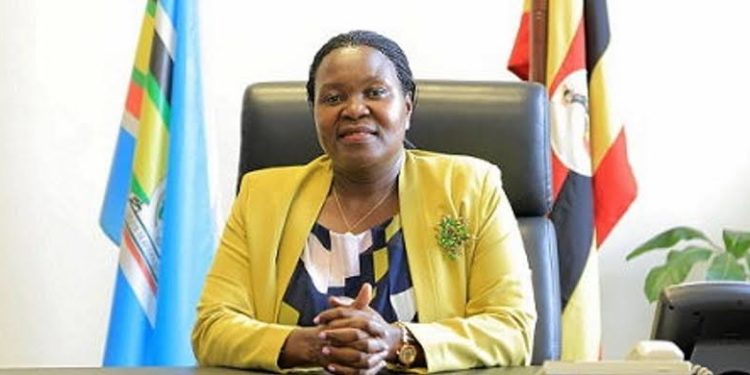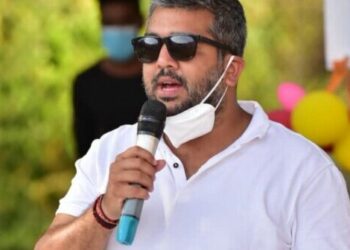Uganda is contemplating on borrowing 1.8 Billion USD from global financial institutions to kick-start the process of the construction of East African Crude Oil Pipeline (EACOP).
The project which has sparked sharp criticisms from environmental conservationists and the western world is estimated to consume between $3.5 Billion and $4 Billion, money not available in the country’s coffers, for which a huge chunk is to be raised through borrowing.
This revelation was made by the Minister for Energy and Mineral Development Hon. Ruth Nankabirwa, in which she divulged that works on the project will start after securing significant part of finances needed through debt financing.
About 40% of the funds have been raised, according to Hon. Nankabirwa, and the search for the rest of the monies is on, with most hopes pinned in the Export-Import Bank of China (EXIM).
Proposed construction of EACOP has irked anti-fossil fuel campaigners, who have issued stern warnings to banks against financing the pipeline needed to transport crude from the oil wells in the Albertine Graben to the port of Tanga in Tanzania, after which it would access global markets.
Some foreign banks, most especially the western-oriented ones indicated their unwillingness to help, however this is not the same case with Exim, which is ready to supply the finances, something that was confirmed by Hon. Nankabirwa.
The project has met stiff opposition from environmentalists claiming that disaster will come from the oil production activities, together with the construction of the 1,443km long EACOP, which when completed will be the longest heated crude oil pipeline in the world.
Up to 20 banks and 13 insurers have reportedly backed off the projects following activists’ pressure. They reportedly include Allianz Group, Swiss Re, HSBC, and BNP Paribas.
More troublesome for the project, several top international reinsurers, including Munich Re, Swiss Re, Hannover Re, SCOR, TALANX, Chaucer, Beazley, AEGIS London, AIG, Aspen, Chubb, Liberty Mutual, Marsh McLennan, and Lloyd’s have also said they will not reinsure the EACOP.
However, Finance Minister Matia Kasaija told the press that there is no cause for an alarm on where monies will come from, noting that they will look for other partners to fund the exploitation of Uganda’s vast energy reserves, chiefly oil and gas.
This publication has learnt that there is an ongoing effort to ensure that the remaining money is raised before the end of 2023 so that construction commences by the beginning of 2024.
Uganda National Oil Company (UNOC) which is a shareholding entity for the project has already paid its own equity share to EACOP, according to Hon. Nankabirwa. Equity to the project is estimated at $2.4 Billion.
The shareholders of EACOP include; the Uganda National Oil Company (UNOC) with 15%; the Joint Venture Partners (Total Holdings International B.V. with 62% and CNOOC Uganda Limited with 8%) and the Tanzania Petroleum Development Corporation (TPDC).
In an interview with Uganda Radio Network (URN) last Friday, Matin Tiffen, the Managing Director for EACOP Ltd said that preparation works on the project were going on within Uganda and Tanzania, with about 6000 people and fifty companies actively working on the project.
URN has since been reliably informed that Uganda is in serious talks with DRC on how to join the EACOP to ease the construction financing burden and the latter’s use of the pipeline.
The DRC Ministry of Hydrocarbons said in a Twitter statement on Tuesday last week that its minister, Didier Budimbu, met Uganda’s Energy Minister Nankabirwa Ssentamu, with discussions involving access to the pipeline.
“Uganda acknowledged the crucial requirement of DRC to access the East African Crude Oil Pipeline (EACOP) for the transport of crude oil to be produced from the oil exploration blocks located in the Albertine Graben in the Democratic Republic of Congo,” the statement read.
Do you have a story in your community or an opinion to share with us: Email us at editorial@watchdoguganda.com












